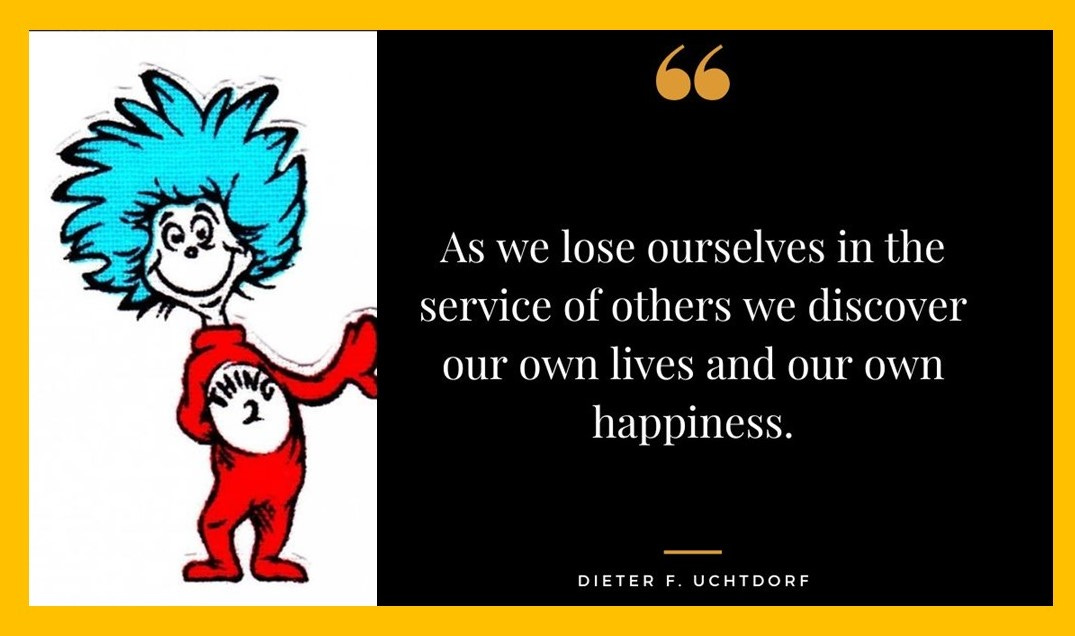'THE THIRD THING'
Stop Chasing It...
The concept of THE THIRD THING, although very ancient, has been recently made popular by some of the modern-day philosophers. The allure of this Third Thing is extremely captivating. Many learned men and works of wisdom have described this allure, yet ordinary people continue to be tempted and entangled by it every day.
What is this Third Thing?
We are all busy performing a variety of actions or tasks to nourish different aspects of our lives. However, we rarely understand the various pieces or facets of a work, e.g., one’s intention or motivation behind the work, its purpose, our goal, and intended contribution. But if we understood this concept of the third thing, all these bits will come together seamlessly, whilst the joy, focus, and absorption during an action will increase significantly. To understand ‘the third thing’- Let us first understand the First and the Second Thing.
Essentially, the process of accomplishing a task is divided into three parts: Thing 1, Thing 2, and Thing 3.
FIRST THING/ THING 1-
is to ‘Perform an action’ – to Do the work
E.g., to finish a project or task successfully,
This process of desiring to do the right thing, executing an action plan, and completing the action is, in itself, a privilege. Being able to do the right thing, in the right way—as inspired by your values and virtues and as aligned with your nature—is an outstanding feat. Being allowed to act according to one’s nature is considered the first aspect of the Lord’s mercy. Therefore, enjoy the satisfaction of a job well done. If one can be inspired to start a task and complete it successfully, it is a rare honor, and we are recommended to receive that mercy and to be deeply content with it.
SECOND THING/ THING 2-
If someone ‘benefits from our action’, their life improves or they are relieved of a burden, it is called the second thing, or Thing 2.
This Thing 2 is the second aspect of the lord’s mercy. In the line of one’s duty —if one completes a work designed to serve others, contributes positively, and adds value to other’s material or spiritual life —then it is considered an extra layer of mercy—and a very well-rounded, successfully accomplished action.
This is where the buck stops for the learned men trained in spiritual science and armed with a deep-rooted understanding of the high-minded philosophy of wisdom books like the Bhagavad Gita.
THE THIRD THING-
This infamous third thing is, however, the most coveted and final aspect of an action, where one also desires the ‘payback’, the ‘recognition’, the ‘appreciation’, or the ‘credit’ for having completed the Thing 1 and the Thing 2.
We are advised by great wisdom books such as ‘Bhagavad Gita’, ‘Tao Te Ching’, and ‘Marcus Aurelius’s Meditations’—never to crave the third thing. In ‘Meditations’, the great Roman emperor Marcus Aurelius recommends to ‘Stop looking for the third thing’.
His exact words were: "When thou hast done a good act and another has received it, why dost thou look for a third thing besides these, as fools do, either to have the reputation of having done a good act or to obtain a return?"
Tao Te Ching teaches ‘one to retreat after one’s success and not to hold on to the credit’.
In the Bhagavad Gita, Krishna says: ‘You have a right to perform your prescribed duty, but you are not entitled to the fruits of action. Never consider yourself the cause of the results of your activities, and never be attached to not doing your duty.’THE DOPAMINE HIT
The reason the third thing is so desirable is that it gives a very pleasurable, yet quite temporary ‘dopamine hit’. This is a short-lasting feeling of gratification and sense of accomplishment, a fickle moment of pleasure, that induces addiction in itself. The tendency is very similar to people getting addicted to ‘likes or loves’ on social media. When this tendency expands to bigger tasks or projects, one expects gratitude, love, credit, admiration, or reciprocation. As these are beyond one’s control, often one’s expectations are frustrated. Moreover, on a spiritual level, those who complete a task with aspirations for a third thing become spiritually entangled by accruing karmic reactions (debts).
BEYOND ONE’S CONTROL
The Bhagavad Gita teaches us that the Third thing is beyond our control. It depends on a multitude of factors outside our control, such as our previous actions/reactions, the free will of the people around us, and their actions/reactions. Moreover, one may not get the third thing if this is not what one deserves or needs in their current situation. We are given only what we need for our eternal spiritual growth and what is deemed fit for us based on our past actions and reactions.
The third thing comes of its own accord- someone imparts it; therefore, it cannot be demanded. It is beyond our realm of control, and it is up to the universe, the Lord, and various other forces to decide whether we are imparted the third thing or not. Thus, instead of focusing on what is not within our control, one should focus on Thing 1, which is within our control.
THE NEXT THING
One of my personal practices, and actually one recommended by wise people, is to look for the next Thing 1 —the next thing to do. The next task to accomplish, the next mountain to climb, the next song to sing, the next dance to dance, the next act of your play, and the next step in your journey. The next action that will improve one’s life and that of others, the next task that will make the world a better place, and the next right thing that will please the Lord and His patrons.
A JOB WELL DONE
How one does Thing 1 determines their future course of existence, future reactions, and, most importantly, their current state of mind and consciousness.
Thing 1 –
A right action- a positive task as approved by scriptures, guided by superior spiritual authorities, and pleasing to the Lord. It should be considered favorable for oneself and others, aiming to make a positive contribution to the world and humanity.
An action that is compliant with our natural propensities and temperament. Thus, the action should be wholesome and nourishing for all those concerned.
It should be performed with focus, attention, absorption, and, most importantly, in a joyful mood, to the best of our ability.
Moreover, the intention behind the work should be to serve and make a positive impact on others’ lives. The work performed in such consciousness is liberating and purifying in both material and spiritual realms.
In a material sense, one feels immense satisfaction and joy at the ‘job well done’. Also, one feels relief at being freed from the anxiety of caring about the results or the response to the work. In a spiritual sense, one does not amass any karmic debts but rather earns eternal spiritual credits for the action performed in the service of the Lord.
THE BEST THING
The best thing is to do Thing 1 (the right action that is guided by proper authority) for the pleasure of the Lord, the divinity who alone matters. His acknowledgement and satisfaction, His acceptance of your action as an offering to Him, and His pleasure are the actual Third Thing that one should aspire for.
Any other third thing — the compensation, the gratitude, the recognition, the payback —in case one gets it, offer it onward and upward to the teachers and the Lord with humility and prayers, but never look for it, hanker for it, or get attached to it. Your transaction in this world concludes with Thing 1 (helping someone), at most with Thing 2 (benefiting someone). Third thing at its best is a waste of one’s time, energy, efforts, and emotions, but at its worst, causes entanglement and takes away the pleasure of ‘thing one’ and ‘thing two’ as well. Therefore, STOP THE CHASE for:











Amazing concept as always!